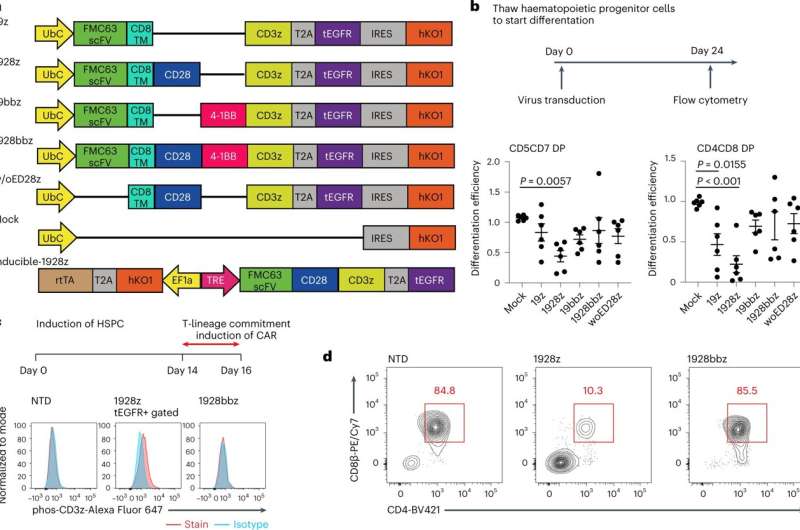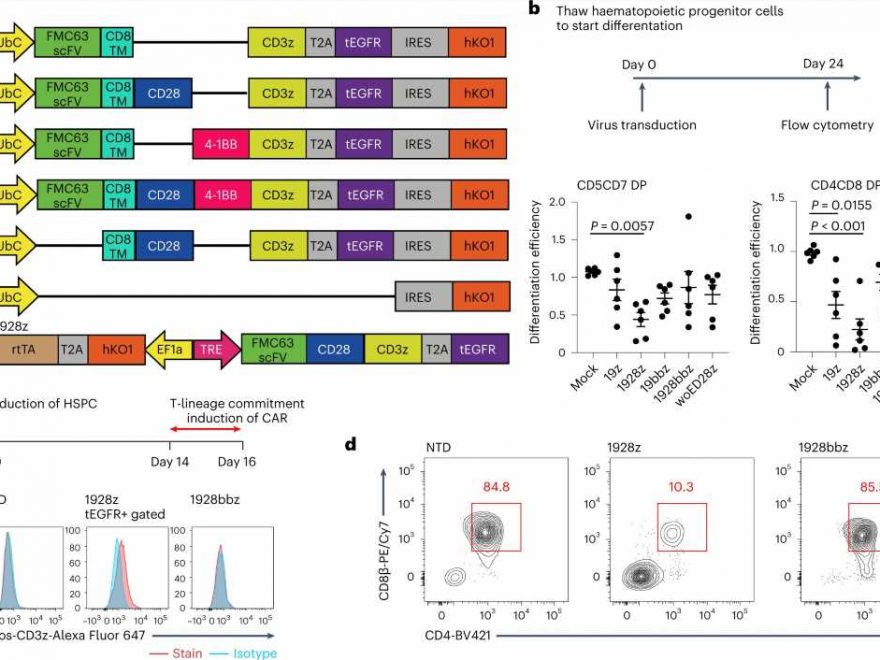
The Shin Kaneko laboratory at CiRA has developed a method to generate CAR-T cells from iPS cells (iCAR-T cells) that possess vastly improved anti-tumor activity in a mouse model of solid tumors.
In order to use T cells expressing chimeric antigen receptor (CAR) effectively in immunotherapy against solid tumors, it is critical for the intravenously administered CAR-T cells to accumulate and proliferate at the tumor site, where they will work continuously to target and eliminate the deleterious cancer cells.
The research group led by Professor Kaneko and Dr. Tatsuki Ueda, a former CiRA researcher now at the University of Chicago, began by examining whether different CAR constructs affected the differentiation of iPS cell-derived hematopoietic progenitor cells into T cells and ultimately selected one that did not have any negative impact on differentiation efficiency.
Next, the team successfully showed in a solid tumor mouse model that two additional genetic manipulations of these iCAR-T cells—designed to augment T cell activation—enhanced their proliferation at the tumor site and extended their survival longer than ever shown before. Strikingly, the modified iCAR-T cells suppressed tumor growth and prolonged the recipient animals’ survival even when only 1/20th of the original dose tested for unmodified iCAR-T cells was administered.
These modifications designed by Kaneko’s team are expected to make the long sought-after practical use of iPSC-derived CAR-T cells for solid tumor treatment one step closer to reality.
The results of this study were published online in Nature Biomedical Engineering on December 12, 2022.
More information:
Tatsuki Ueda et al, Optimization of the proliferation and persistency of CAR T cells derived from human induced pluripotent stem cells, Nature Biomedical Engineering (2022). DOI: 10.1038/s41551-022-00969-0
Journal information:
Nature Biomedical Engineering
Source: Read Full Article
